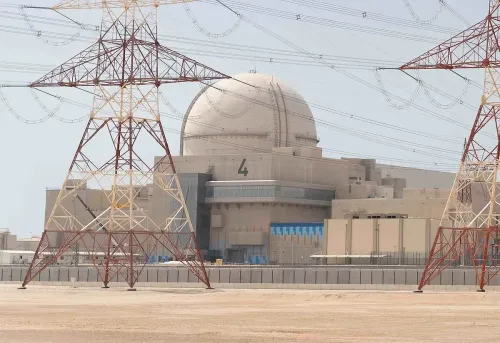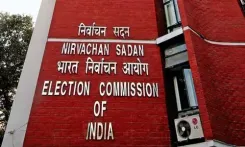Is India’s InvIT Market Really Set to Skyrocket to $258 Billion by 2030?

Synopsis
Key Takeaways
- AUM of InvITs in India is expected to grow significantly.
- Increased investment from institutional investors is a key driver.
- Infrastructure spending has surged, reflecting strong policy focus.
- India aims for a $7 trillion economy, requiring substantial investments.
- Engaging domestic long-term capital is essential for growth.
New Delhi, Aug 19 (NationPress) The total Assets Under Management (AUM) of Infrastructure Investment Trusts (InvITs) in India have surged to $73 billion in FY 2025, fueled by extensive infrastructure investments. This figure is anticipated to increase 3.5 times to $257.9 billion by 2030, as reported on Tuesday.
"This expansion will be driven by enhanced allocations from institutional investors, growing participation of domestic pension and insurance funds, increased foreign investment, and heightened awareness among retail investors," stated Knight and Frank in their report.
India has become one of the fastest-evolving destinations for Infrastructure Investment Trusts and Real Estate Investment Trusts (REITs) within Asia.
According to Shishir Baijal, Chairman and Managing Director of Knight Frank India, "India’s InvIT platform is on the brink of a transformative growth phase. From an AUM of $73 billion today, we are projected to reach $250–265 billion by 2030, signifying a 3.5 times increase in under five years."
This growth will not only help close critical infrastructure financing gaps but also create new avenues for both domestic and global capital to engage in India’s growth narrative, Baijal added.
Investment in India’s infrastructure has rapidly accelerated in recent years, driven by the imperative to modernize assets and enhance efficiency. Both central and state governments have pledged considerable capital expenditure, with the Centre taking the lead.
Central government expenditure on core infrastructure skyrocketed from $12 billion in FY 2015 to $75 billion in FY 2025, a staggering 6.2-fold increase, growing from 0.6 percent to 2.0 percent of GDP during the same period, reflecting a robust policy focus on infrastructure-led growth, as stated in the report.
Infrastructure development is pivotal for achieving India’s target of a $7 trillion economy, which Knight Frank estimates will necessitate $2.2 trillion in investment.
Rajeev Vijay, Executive Director - Government and Infrastructure Advisory at Knight Frank India, further commented, "The upcoming chapter for India’s InvIT market will focus on depth and diversity. Institutional investors, particularly sovereign and global pension funds, have already anchored the market."
The challenge now is to unlock larger pools of domestic long-term capital, especially from insurance and pension funds, where current exposure is only 3–5 percent, he added.
The report indicates that globally, there are over 1,000 publicly listed REITs and InvITs, also known as master business trusts, with a combined market capitalization of approximately $3 trillion.
Currently, India has five REITs and 17 InvITs listed on the stock exchange, with a total market capitalization of $33.2 billion.









